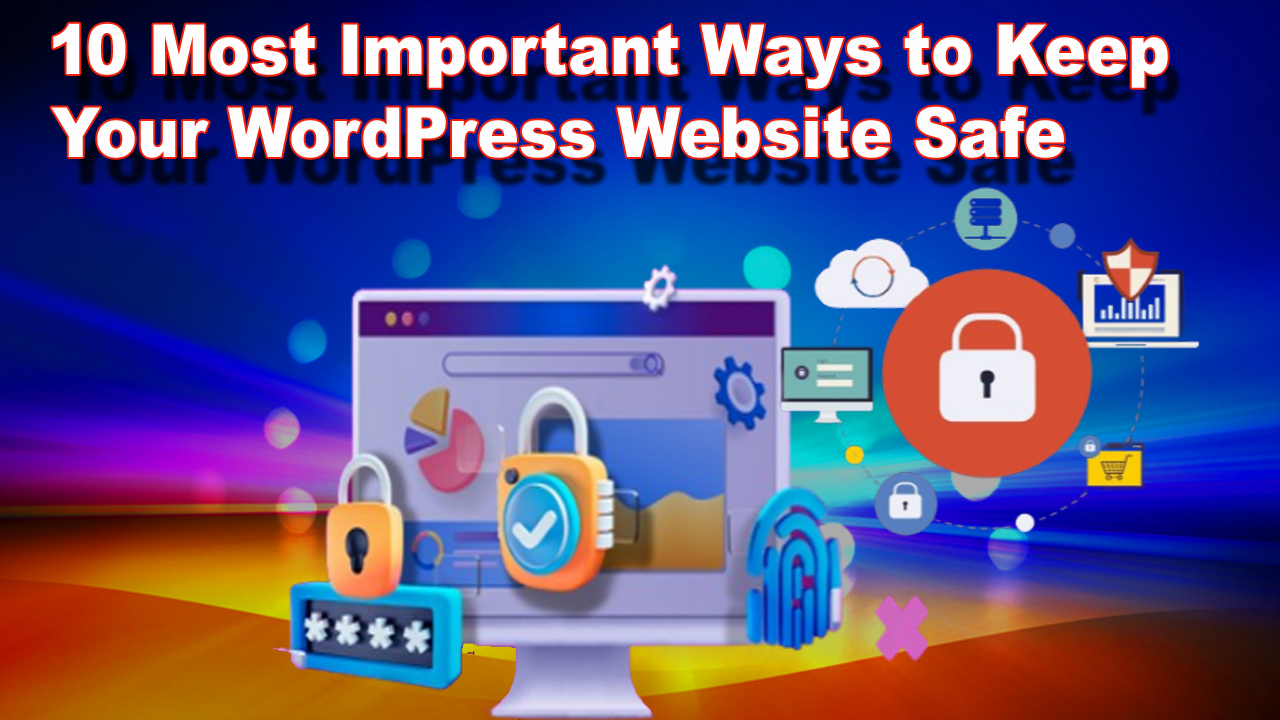
Dilshad Mushtaq is the founder and CEO of Best SEO Zone which is a prominent digital marketing agency based in Pakistan Since 2010. He is a professional website developer & Digital Marketer who can create any website and rank it on Google Page One.

In an era where cyber threats loom large, prioritizing your website’s security has never been more critical. This is especially true for platforms like WordPress which powers a significant portion of the internet. As online transactions become more prevalent securing your digital stronghold becomes paramount. This guide will explore ten effective ways to fortify your WordPress website against malicious hackers and cyber threats ranging from best practices to essential tools and tactics.
The frequency and intensity of cybersecurity attacks are on the rise making it imperative to prioritize website security. Websites especially those facilitating online transactions like ecommerce platforms are prime targets. The WordPress Content Management System (CMS) widely popular and versatile is not immune to these threats. The consequences of a breach range from stolen data to a complete website shutdown. In this evolving digital landscape implementing robust WordPress security measures is nonnegotiable.
Hacked websites exhibit various signs each indicating a potential breach. Common infiltration methods include ransomware attacks the Gibberish hack Cloaked Keywords hack and Denial of Service (DoS) attacks. Phishing where scammers impersonate your business is another prevalent tactic. Neglecting regular software updates poses a significant risk leaving websites vulnerable to exploitation. Recognizing these signs is the first step toward preventing a hack.
Installing a Secure Sockets Layer (SSL) certificate is a fundamental yet powerful step. SSL encrypts data between your website and visitors ensuring a secure browsing experience. Beyond data protection, SSL improves SEO ranking and guards against phishing attacks. The visual cue of a padlock icon in the address bar builds trust among visitors.
Unused plugins and themes create potential entry points for hackers. Similar to decluttering a physical space removing unused plugins and themes enhances website security. This practice not only reduces vulnerabilities but also improves overall website performance and speed.
Security plugins automate the tedious task of securing your website. From scanning for infiltration attempts to fixing vulnerable files these plugins provide a comprehensive security shield. Choosing a reputable and legitimate security plugin is crucial to ensure the effectiveness of this automated defense.

Backups act as a safety net for your website allowing you to restore it to a previous uncorrupted version in case of a disaster. Automatic site backup services ensure daily backups providing a reliable contingency plan against unexpected crashes or hacks.
Regularly updating your website’s software is paramount for smooth functionality and security. Developers release updates to fix vulnerabilities and bugs and enhance performance. Enabling auto updates for WordPress core themes and plugins is a proactive approach to maintaining robust WordPress security.
Controlling access rights to files and folders is crucial in thwarting potential hackers. Web hosts typically offer tools like File Manager or FTP clients to manage file and folder permissions. Special attention to critical files like wp-admin and wp-config enhances security.
Regular malware scans are essential to identify and remove potential threats to your website. WordPress malware scanner plugins utilize advanced algorithms to detect malicious code and perform routine security checks. Staying ahead of cybercriminals requires ongoing vigilance.

Selecting a secure web hosting provider is a foundational step in website security. Features such as VPS or dedicated hosting regular updates network monitoring automatic backups and malware prevention tools are essential considerations. A reliable support team further ensures prompt resolution of security or technical issues.
Concealing your WordPress version is a strategic move to thwart potential hackers. Knowledge of the WordPress version can facilitate attacks, particularly on outdated versions with known vulnerabilities. Utilizing the WordPress Theme Editor helps hide this information from prying eyes.
Hotlinking where other sites embed your content without permission strains server resources and poses security risks. Preventing hotlinking whether through FTP clients’ security plugins CDNs or control panel settings protects your website integrity and avoids legal repercussions.
Selecting a secure web hosting provider is a foundational step in website security. Features such as VPS or dedicated hosting regular updates network monitoring automatic backups and malware prevention tools are essential considerations. A reliable support team further ensures prompt resolution of security or technical issues.

ZNetLive offers tailored hosting solutions including optimized WordPress hosting plans designed for businesses of all sizes. Whether you’re a blogger an e-commerce business or an SMB ZNetLives hosting plans prioritize performance reliability and scalability.
In conclusion, safeguarding your WordPress website demands a proactive and multifaceted approach. By implementing these ten crucial measures you establish a robust defense system against the myriad threats lurking in the digital landscape. Stay vigilant stay secure and let your WordPress oasis thrive in the ever-evolving world of website security.

Dilshad Mushtaq is the founder and CEO of Best SEO Zone which is a prominent digital marketing agency based in Pakistan Since 2010. He is a professional website developer & Digital Marketer who can create any website and rank it on Google Page One.

